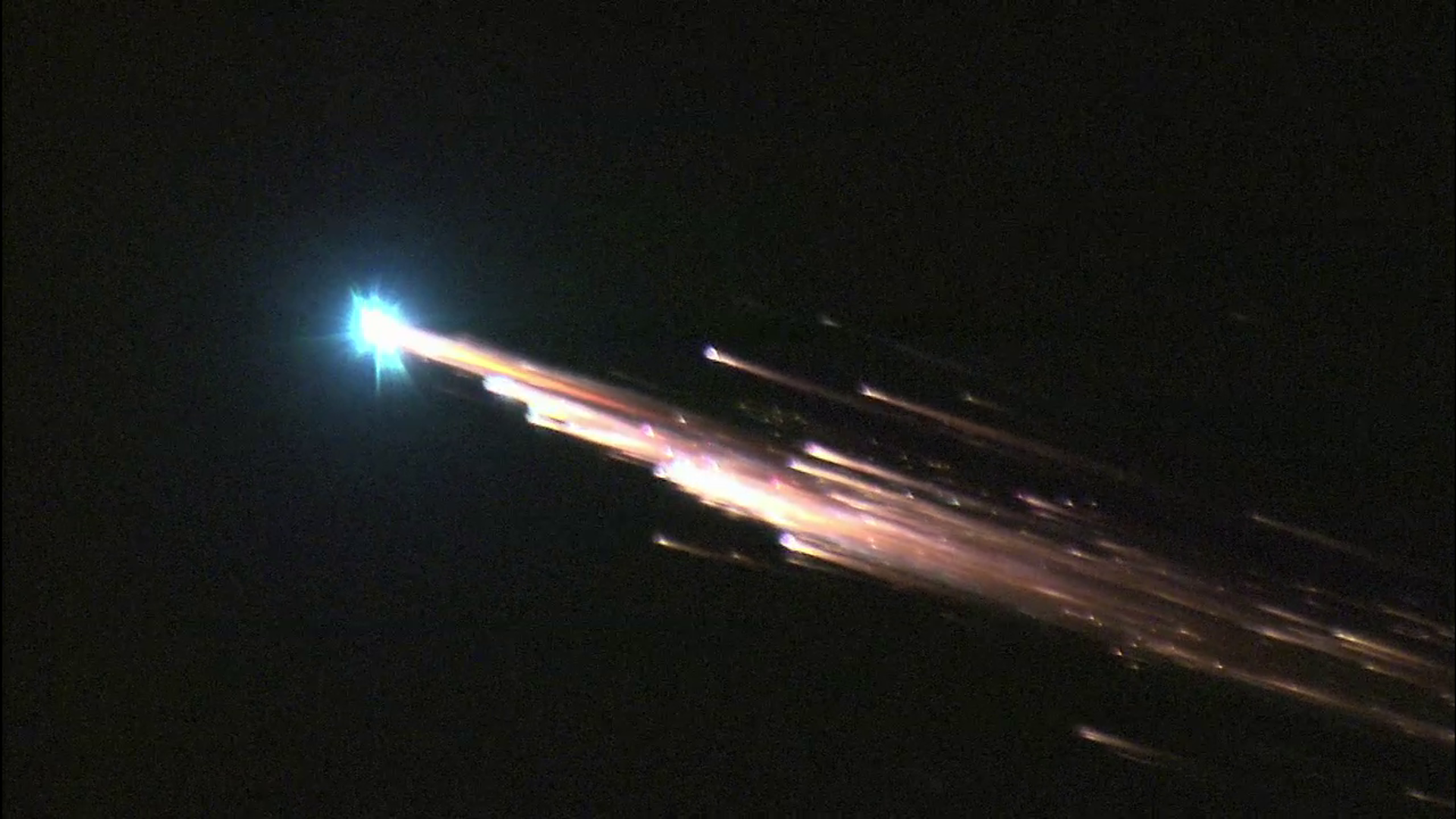
The environmental impacts of spaceflight are becoming increasingly clear as more and more
spacecraft are launched into Earth's orbit. The growing number of satellites burning up in Earth's atmosphere has concerned scientists for years, and now a new paper explores how the emerging shell of "conductive dust" around the planet that results from satellite re-entries may affect Earth's protective magnetic field . "We're surrounding the planet with trash," Sierra Solter-Hunt, an
American physicist and PhD candidate at the University of Iceland, told Space.com. Solter-Hunt is the sole author of the new paper , which has been published in December 2023 as pre-print on the online repository Arxiv and is still awaiting peer-review. Since then, the paper has stirred discussions online. Solter-Hunt is happy about that, even though some consider her conclusions exaggerated. "I wanted to get the conversation started," she said. Related: Burned-up space junk pollutes Earth's upper atmosphere,
NASA planes find Solter-Hunt came across the problem of increasing concentrations of metallic dust in Earth's upper atmosphere during her PhD research into "plasma dust." Plasma dust, she explains, arises from interactions of the fragile ionized gas that makes up Earth's upper atmosphere and the microscopic ash particles left behind from the burn-up of meteors that strike the planet as well as from satellites that spiral back after running out of fuel at the end of their missions. Meteors have been hitting Earth since the beginning of time, but their chemical composition is completely different from that of satellites. "Meteors only contain trace amounts of highly conductive metals" Solter-Hunt said. "Satellites, on the other hand, are basically entirely made of superconductive metals." 50 tons of space rocks evaporate in Earth's atmosphere every day, leaving behind about 450 kilograms of charged dust, according to Solter-Hunt's calculations. That is three times less than what a single re-entering Starlink satellite generates. Currently, about one old satellite perishes in Earth's atmosphere every day, according to the National Oceanic and Atmospheric Administration. But as megaconstellation operators such as SpaceX's Starlink continue to build up their fleets, that number is set to grow. If
SpaceX completes its second-generation Starlink constellation of 42,000 satellites as planned, Starlink satellites alone will be re-entering at a rate of 23 a day. That's because SpaceX foresees to regularly upgrade its fleet with newer, more capable spacecraft. "This is approximately 29 tons of satellite re-entry material every day, just for the Starlink megaconstellation," Solter-Hunt said. The researcher said that with current technology, it's hard to model how exactly this amount of conductive material will impact Earth's magnetic field. "Satellites are mostly made of aluminum and aluminum is a superconductor," Solter-Hunt said. "Superconductors are used for blocking, distorting or shielding of magnetic fields. My concern is that at some point in the future, this conductive dust could create some perturbations in the magnetosphere." Already at this point, the returning human-made debris has created more conductive dust than is the mass of Earth's Van Allen radiation belts , two regions above the planet where charged particles from the sun accumulate thanks to the effects of the planet's magnetic field. The inner and outer Van Allen belts extend between altitudes of 3,700 miles and 7,400 miles (6,000 and 12,000 kilometers) and 16,000 and 28,000 miles (25,000 to 45,000 km) respectively. The magnetic dust from re-entering satellites, on the other hand, accumulates much lower — about 37 to 50 miles (60 and 80 km) above Earth's surface. Solter-Hunt thinks that the perturbations caused by the conductive shell could poke holes in Earth's protective magnetic shield, potentially allowing more harmful cosmic radiation to reach the planet's surface. An extreme, almost apocalyptic scenario could see the weakened magnetosphere allow solar wind to begin stripping away Earth's atmosphere as it had done to the atmosphere of
Mars billions of years ago. That, however, is certainly not an immediate threat. Solter-Hunt is more concerned about effects on the ozone layer. When the aluminum from the satellites burns, it turns into aluminum oxides, a known ozone-depleting substance. The danger presented by megaconstellation debris to the ozone layer has been explored before by a research team led by Aaron Boley, an associate professor of astronomy and astrophysics at the University of
British Columbia,
Canada. Boley, whose paper was published in the prestigious journal Scientific Reports, declined to comment on Solter-Hunt's paper in detail, but said it "opens up an important discussion." Karen Rosenlof, an atmospheric chemistry scientist at NOAA who has published papers on the effects of aluminum oxides from satellite re-entries on Earth's upper atmosphere, however, said the conclusions should be approached with caution. Scientists, including Rosenlof and Boley, have previously expressed concerns about the growing concentrations of satellite ash in Earth's atmosphere and how that might affect the planet in the long term. — Air pollution from reentering megaconstellation satellites could cause ozone hole 2.0 — Satellites are burning up in the upper atmosphere – and we still don’t know what impact this will have on the Earth’s climate — The rise of space tourism could affect Earth's climate in unforeseen ways, scientists worry In October 2023, another team reported detecting particles that come either from rocket exhaust or burnt space junk at altitudes of 11.8 miles (19 km) above Earth's surface using NASA's high-altitude research plane. Researchers think that these particles, due to their minuscule size, either stay in the atmosphere forever or take a very long time to fall back to Earth. With the increasing rate of rocket launches and satellite flights, their concentrations are likely set to steeply grow. Just like the growing concentrations of greenhouse gases in Earth's atmosphere, the consequences may only become obvious decades from now. "These megaconstellations will be constantly creating pollution," Solter-Hunt said. "There will be more and more of it and it's going to create some different chemical reactions and we have basically no understanding of it."